Being self-employed is great in a lot of ways. You control your time, your clients, and your work. But when you are your own boss, it can be more difficult to qualify for a mortgage than it is for people with regular jobs.
But don’t let that stop you from buying your new home. We’ll show you the steps to getting a mortgage in North Carolina even if you’re self-employed, and teach you what documentation you’ll need to bring to your mortgage lender. We’ll even add a few tips that will help you improve your odds of qualifying.
Why Qualifying for a Mortgage in Charlotte Is Different If You’re Self-Employed
When you work for someone else, you get a pay stub every time you get paid. That pay stub shows how much you worked, what you earned, and what the government took out in taxes. It can even show how much you contributed to a retirement plan.
But when you’re self-employed, you don’t have to issue yourself that kind of paycheck. Depending on how your business is set up (sole proprietorship, LLC, S-Corp, and so on), you might just receive payment from your customers and clients — the rest is up to you to figure out.
Mortgage lenders don’t have much to go on when evaluating you for a home loan when you’re self-employed. There’s no regular pay history like there is when you receive a weekly or biweekly paycheck. It’s a little like you’re saying, “Trust me, I’m good for it!” But the mortgage lender wants assurance that you’ll actually have money coming in you can use to pay your monthly mortgage payments.
What Mortgage Lenders Are Looking For
Whether you’re buying a home in Charlotte, Chicago, or somewhere in between, you’ll need to qualify for your mortgage.
Mortgage lenders are looking for proof of income, a decent credit score, and a little money in the bank. Basically, they want to know how much you make, and whether or not you can expect that cash flow to continue. If you had a regular hourly or salary job, the mortgage company could just check in with your employer. But when you work for yourself, it takes a little more convincing. That’s why it’s important to gather up supporting documentation to make your case.
How to Prove Your Income
You don’t have to ask the mortgage lender to take your word for it! There is plenty of documentation you can provide that proves your income. (Some of it is the same type of documentation you’d need to buy an FHA, USDA, or VA home in North Carolina, so it’s a good idea to gather this information no matter what your employment status is.)
Required Documents for Self-Employed Homebuyers
Your mortgage lender might ask for the following documents to illustrate your income and expenses:
- Federal income tax returns. These show how much income you reported to the government on your taxes. You’ll need last year’s income tax return (such as a 1040), and you may be asked to provide returns for previous years as well.
- Business tax forms. Depending on how your business is structured, you may need to provide business tax returns, such as Form 1120S (for S-corporations) or Form 1065 if you’re running an LLC or partnership. If your business is a sole proprietorship, you may be asked to provide a copy of your Schedule C, which details your business costs.
- Profit and Loss (P&L) statements. These are reports that show the money you take in as well as your business expenses. You can ask your accountant for a P&L statement or generate one from your accounting software.
- CPA letters. These are formal statements from a certified public accountant or similar that attests to your income.
You might also be asked for IRS transcripts, banking statements, and information about any outstanding debts. You might also be asked to provide proof of your business name (such as a DBA, or “doing business as”), business licenses, or professional memberships.
Ideally, these forms will demonstrate a well-established business, with stability and an adequate flow of income. Combined with knowledge about the business you’re in and future expectations for growth, the mortgage company will be better prepared to evaluate your financial fitness.
Tip: Check out our Mortgage Calculator to get an idea of what you might be able to afford.
How to Improve Your Odds
It might feel nerve-wracking to put your future in the hands of your mortgage company, leaving it up to them to decide whether you can buy a home. But there are several things you can do to improve your odds and boost your chances of getting a mortgage for your dream home.
- Hustle for more business.This is a great way to increase your income.
- Decrease your debt. Pay down any loans you have and improve your debt-to-income ratio.
- Boost your credit score. Regular, on-time payments of at least the minimum amount due will help you raise your credit score.
- Save up a bigger down payment. This will reduce the amount you need to borrow, and might make it easier for you to get approved.
- Improve your record-keeping. Organized, accurate paperwork is important for getting a mortgage — and it will probably help you in your business, too.
Of course, the best way to improve your chances of success is to work with a mortgage broker that knows what you’re going through. The team at Fairway Mortgage of the Carolinas is committed to providing you with the best advice and service to help you in your quest for a new home. We make it easy for you to get started on the mortgage process, so you can successfully close on your new home! Reach out today and let your business help you fund the home of your dreams.
References:
https://www.rocketmortgage.com/learn/self-employed-mortgage
https://www.lendingtree.com/home/mortgage/how-to-get-a-self-employed-mortgage/
https://www.investopedia.com/articles/mortgages-real-estate/08/self-employed-mortgage.asp
https://www.quickenloans.com/learn/self-employed-mortgage
https://www.forbes.com/advisor/mortgages/getting-a-mortgage-when-self-employed/f








